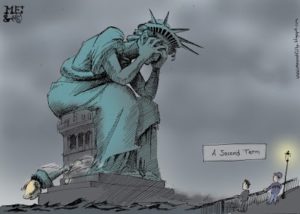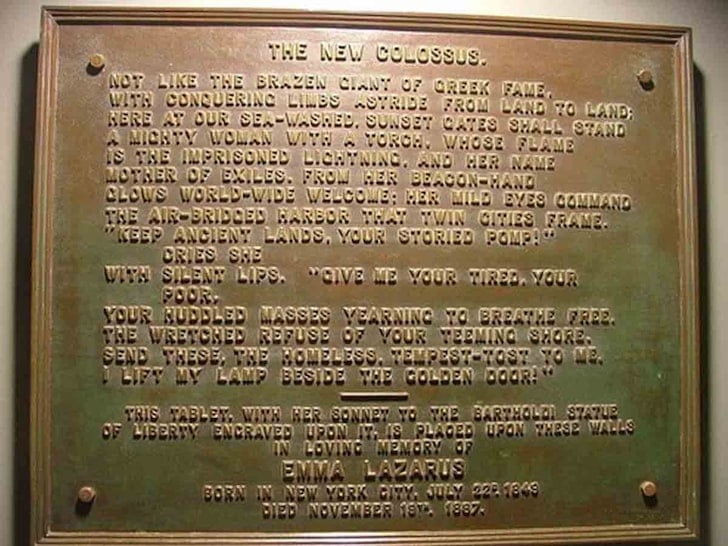
She didn't say a mother of European exiles. In the beginning of the poem, she refers to the statue, and she refers to America as a mother of exiles. Based on your understanding, is that true?

Cuccinelli there saying that this poem was referring to people coming from Europe. KELLY: About all immigrants, which is interesting because we heard Mr. But she writes this poem about all immigrants. It's interesting because she herself was helping East European Jewish immigrants. KELLY: So she was specifically writing to an eye with what people arriving in America - what new immigrants would see as they pulled up in their boats. And according to Constance Cary Harrison, Emma's eyes lit up, and she came back in two days or three days with the poem, "The New Colossus." Think of how they'll see the statue in the harbor. And then her friend Constance Cary Harrison said, no, but, you know, Emma, think of these refugees you are helping. She's writing about anti-Semitism in Russia that had prompted a lot of this migration.īut she writes the poem itself in response to a request from a friend who in 1883 approached her and said, will you write a poem to raise money for the pedestal of the Statue of Liberty? And at first, Emma said, I don't write on command. And she is teaching them English and she's advocating for them. POLLAND: Well, actually, she - 1881, 1882, she becomes very involved in helping East European Jewish immigrants who have arrived and are in need of help. KELLY: And what prompted her to write this poem in 1883? Do we know? POLLAND: Emma Lazarus was a fifth-generation American Jew who was of Sephardic background, meaning her ancestors had left Spain and Portugal due to expulsion and had travelled and then in the 1700s found a safe place to be in the United States. She's the executive director of the American Jewish Historical Society, which is leading an initiative called the Emma Lazarus Project. KELLY: The poem was written in 1883, which prompted us to wonder, what might Emma Lazarus make of her poem sparking debate now in 2019? Well, let's put that to Annie Polland. Well, Cuccinelli stood his ground last night on CNN.ĬUCCINELLI: Well, of course, that poem was referring back to people coming from Europe where they had class-based societies where people were considered wretched if they weren't in the right class.

KELLY: A rewrite to the original poem, which reads give me your tired, your poor, your huddled masses yearning to breathe free. KEN CUCCINELLI: Give me your tired and your poor who can stand on their own two feet and who will not become a public charge. Here is Cuccinelli in an interview yesterday on NPR's Morning Edition. Citizenship and Immigration Services Director Ken Cuccinelli has offered his own version of the famous Emma Lazarus poem on the base of the Statue of Liberty. In defense of that new public charge rule, Acting U.S.


 0 kommentar(er)
0 kommentar(er)
